Welcome to a place where history, culture, and natural beauty come alive. Amarah, located in southern Iraq, is a hidden gem waiting to be explored. This vibrant city offers a unique blend of ancient traditions and modern attractions, making it a must-visit destination for travelers.
From ancient relics to bustling markets, Amarah is full of surprises. You’ll discover hidden treasures that showcase the rich heritage of this region. Whether you’re drawn to historical sites or scenic views, there’s something for everyone here.
This guide is designed to help you make the most of your visit. You’ll find local insights, travel tips, and safety recommendations to ensure a smooth journey. Get ready to experience the magic of Amarah and create unforgettable memories.
Why Visit Amarah, Iraq?
Step into a city where history and modernity intertwine. Located along the Tigris River, this destination offers a unique blend of ancient heritage and contemporary life. Its strategic position has made it a hub of cultural vibrancy and historical significance for centuries.
Travel here is more than just a trip—it’s a journey through time. You’ll find relics of the past seamlessly integrated with modern advancements. From bustling markets to serene river views, every corner tells a story waiting to be discovered.
Getting around is easy, with options like taxis, buses, and guided tours. Locals are known for their warmth and hospitality, making your visit even more enjoyable. Whether you’re exploring historic landmarks or enjoying the scenic beauty, this city promises unforgettable experiences.
Imagine strolling along the riverbanks, soaking in the vibrant culture, and uncovering hidden gems. This is a place where every moment feels like a new adventure. Ready to explore? Your journey starts here.
Discover Amarah’s Rich History
Uncover the layers of history that shape this vibrant destination. From its Ottoman roots to modern influences, this city is a living testament to centuries of cultural evolution. Every corner tells a story, blending the past with the present in a way that’s both fascinating and inspiring.
Ottoman Roots and Modern Influences
Founded in the 1860s, this city’s Ottoman heritage is deeply woven into its identity. The Ottomans left behind architectural marvels and a cultural legacy that still resonates today. Over the years, modern influences have blended seamlessly with these traditions, creating a unique urban tapestry.
Walking through the streets, you’ll notice how historic buildings stand alongside contemporary structures. This blend of old and new is a testament to the city’s ability to honor its past while embracing the future. It’s a place where every step feels like a journey through time.
Historic Landmarks and Heritage Sites
This destination is home to numerous landmarks that serve as windows into the past. From ancient relics to well-preserved sites, each one tells a story of empires, battles, and cultural exchanges. These places are not just tourist attractions—they’re vital pieces of the city’s identity.
One such site is the remnants of the ancient capital, which continue to inspire and educate visitors. These ruins offer a glimpse into the grandeur of past civilizations and their lasting impact on the region. Preserving these sites is crucial for future generations to understand and appreciate their heritage.
Local custodians of history play a key role in maintaining these landmarks. Their dedication ensures that the stories of the past remain alive, offering visitors a chance to connect with the city’s rich legacy. Whether you’re a history enthusiast or a curious traveler, these sites promise an unforgettable experience.
As you explore, you’ll discover how the city’s ancient city roots have shaped its modern identity. It’s a place where the past and present coexist, offering a unique perspective on the region’s history. Dive into this journey and uncover the stories that make this destination truly special.
Top Attractions in Amarah
Immerse yourself in the cultural heartbeat of this historic city. From stunning architecture to vibrant community life, this destination offers a treasure trove of experiences. Each site tells a story, blending art, history, and culture in captivating ways.
Must-See Cultural Sites
Begin your journey at the iconic building also known as the Al-Majar Al-Kabir Mosque. This architectural marvel showcases exquisite craftsmanship and serves as a spiritual hub for locals. Its intricate designs and towering minarets are a testament to the city’s artistic flair.
Next, visit the historic building also known as the Amarah Clock Tower. This landmark stands as a symbol of the city’s resilience and innovation. Its blend of Ottoman and modern influences makes it a must-see for history enthusiasts.
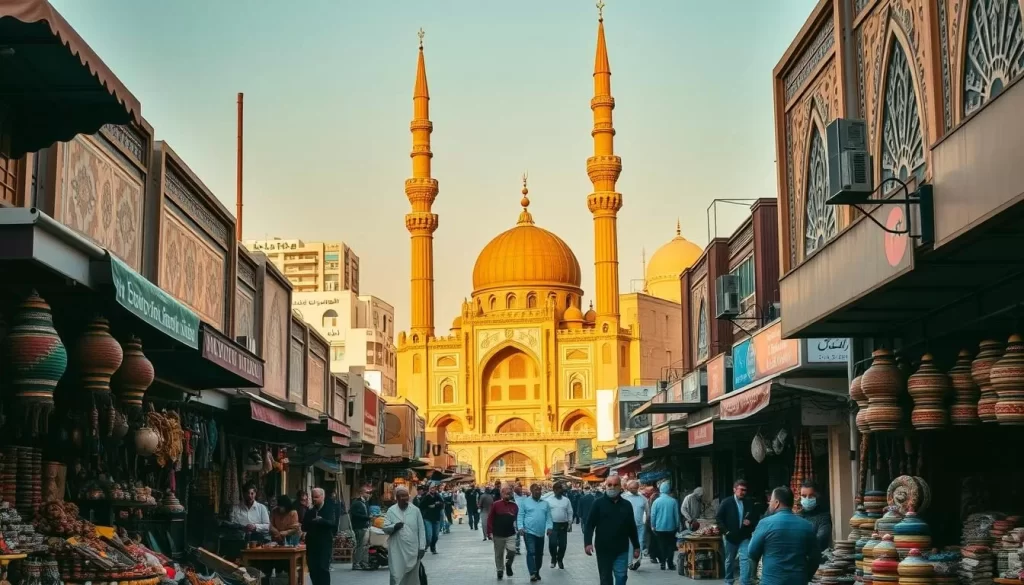
Don’t miss the Al-Muhsin Palace, a building also known for its grandeur and historical significance. Once a residence for royalty, it now offers a glimpse into the city’s opulent past. Guided tours are available, providing deeper insights into its storied walls.
For a taste of local art, explore the Amarah Cultural Center. This building also known as a hub for creativity hosts exhibitions, workshops, and performances. It’s a great place to connect with the city’s vibrant artistic community.
Finally, stroll through the Old Market, a building also known for its bustling atmosphere and traditional crafts. Here, you’ll find handmade carpets, copper works, and embroidered textiles that reflect the city’s rich heritage.
| Site | Highlights | Tips |
|---|---|---|
| Al-Majar Al-Kabir Mosque | Exquisite craftsmanship, spiritual hub | Visit during non-prayer times for a quieter experience |
| Amarah Clock Tower | Ottoman and modern influences | Capture photos during golden hour for stunning lighting |
| Al-Muhsin Palace | Historical grandeur, guided tours | Wear comfortable shoes for exploring the expansive grounds |
| Amarah Cultural Center | Art exhibitions, workshops | Check the schedule for special events |
| Old Market | Traditional crafts, bustling atmosphere | Bargain politely for the best deals |
These sites offer a deep dive into the local traditions and innovative spirit of the city. Whether you’re exploring on your own or with a guide, each visit promises unforgettable memories. Don’t forget to capture photos of these compelling cultural icons to cherish your journey.
Exploring Local Hidden Gems
Dive into the heart of this vibrant destination and uncover its hidden treasures. Beyond the well-known landmarks, this area is brimming with authentic experiences that showcase its rich culture and natural beauty. From bustling markets to serene river views, these lesser-known spots offer a glimpse into the everyday charm of this historic location.
Vibrant Markets and Artisan Workshops
Start your journey at the bustling local markets, where you’ll find a treasure trove of cultural artifacts and flavors. These markets are a hub of activity, offering everything from handmade crafts to traditional textiles. Each stall tells a story, reflecting the creativity and heritage of the area.
Don’t miss the artisan workshops, where skilled craftsmen preserve ancient techniques. Watch as they create intricate pottery, woven carpets, and copper works. These workshops are a testament to the city’s dedication to preserving its cultural legacy.
Scenic Tigris River Views
For a peaceful escape, head to the banks of the Tigris River. This iconic waterway offers breathtaking views that are perfect for nature lovers and photographers. The tranquil atmosphere makes it an ideal spot for a leisurely stroll or a quiet moment of reflection.
Visit during sunset to witness the river bathed in golden hues. The Tigris River is not just a scenic marvel—it’s a vital part of the city’s identity, shaping its history and culture.
| Spot | Highlights | Tips |
|---|---|---|
| Local Markets | Handmade crafts, traditional textiles | Visit early for the best selection |
| Artisan Workshops | Pottery, woven carpets, copper works | Engage with craftsmen for insights |
| Tigris River | Scenic views, tranquil atmosphere | Bring a camera for sunset shots |
These hidden gems provide a deeper connection to the area’s culture and natural beauty. Whether you’re exploring the markets, admiring artisan craftsmanship, or soaking in the river views, each experience offers a unique perspective on this historic location.
Amarah, Iraq: Best Things to Do – Top Picks
Experience the charm of a city where history meets modernity. This destination offers a unique blend of ancient heritage and vibrant culture, making it a must-visit for travelers. From historic landmarks to bustling markets, there’s something for everyone here.
Whether you’re drawn to the grandeur of the Al-Muhsin Palace or the serene views of the Tigris River, this city promises unforgettable experiences. Each attraction tells a story, blending the past with the present in captivating ways.
For history enthusiasts, the remnants of ancient civilizations offer a glimpse into the region’s rich legacy. Meanwhile, the vibrant markets and artisan workshops showcase the creativity and traditions of the local community.
As you explore, you’ll discover a city that’s full of surprises. From cultural sites to natural beauty, every moment here feels like a new adventure. Ready to dive deeper? Your journey through this guide is just beginning.
Ancient Architecture and Nearby Marvels
Journey through the architectural wonders that define this historic region. From ancient engineering feats to modern designs, the city’s structures tell a story of innovation and cultural evolution. Each landmark reflects a unique blend of artistry and technical mastery.
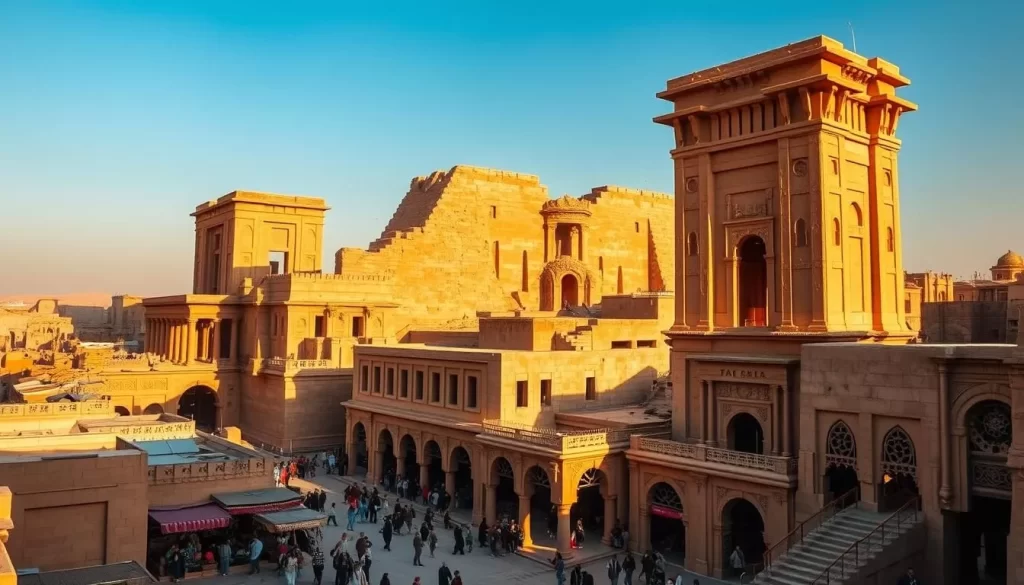
Legacy of Ctesiphon and Sassanian Engineering
The Arch of Ctesiphon stands as a testament to Sassanian engineering brilliance. Built in the 3rd century, this marvel was once the largest single-span vault of its time. Its construction techniques influenced architecture for centuries, showcasing the ingenuity of ancient builders.
This iconic structure was part of the Sassanian capital, a hub of culture and power. Its design principles, such as the use of baked bricks and parabolic arches, set new standards. Today, it remains a symbol of the region’s rich architectural heritage.
Architectural Influences on Modern Designs
The legacy of ancient structures like the Arch of Ctesiphon continues to inspire modern architecture. Local buildings often incorporate traditional elements, blending the old with the new. This fusion creates a unique urban landscape that honors the past while embracing the future.
Visitors can explore this evolution through guided tours. These experiences highlight the way historical designs have shaped contemporary styles. From intricate carvings to innovative materials, the craftsmanship of the past remains evident in today’s constructions.
For a deeper dive, visit local museums that showcase ancient artifacts and models. These exhibits offer a closer look at the techniques and tools used by master builders. It’s a fascinating way to connect with the region’s architectural legacy.
Immerse Yourself in Local Culture
Discover the vibrant soul of a city where culture and tradition come alive. From the flavors of authentic cuisine to the rhythms of seasonal festivals, this place offers a rich tapestry of experiences. Dive into the heart of its community and connect with the stories that shape its identity.
Authentic Iraqi Cuisine Experiences
Step into bustling street food stalls and traditional restaurants to savor the warmth of Iraqi hospitality. Dishes like masgouf, a grilled fish delicacy, and kubba, a spiced meat-filled dumpling, showcase the region’s culinary heritage. Each bite tells a story of generations-old recipes and local ingredients.
For a deeper connection, engage with local chefs who often share the rich history behind their dishes. Whether you’re dining at a family-run eatery or sampling street food, the flavors will leave a lasting impression.
Cultural Festivals and Traditions
Celebrate the city’s vibrant spirit through its seasonal festivals. These events honor decades of rich history and community pride. From music and dance performances to traditional crafts, each festival offers a glimpse into the local way of life.
Don’t miss the chance to interact with festival organizers and artisans. Their stories add depth to your experience, making it more meaningful and memorable.
| Activity | Highlights | Tips |
|---|---|---|
| Street Food Stalls | Authentic flavors, affordable prices | Try masgouf and kubba for a true taste of the region |
| Traditional Restaurants | Family recipes, warm hospitality | Ask about the history behind the dishes |
| Seasonal Festivals | Music, dance, crafts | Engage with organizers for behind-the-scenes insights |
Immersing yourself in the local culture enriches your journey, offering a deeper understanding of this place. From savoring authentic cuisine to celebrating vibrant traditions, every moment becomes a cherished memory.
Perfect Day Trips and Excursions
Escape the hustle and bustle of the city and venture into the serene landscapes that surround this historic destination. Just a short journey from the center, you’ll find expansive marshlands and natural reserves teeming with life. These areas offer a peaceful retreat and a chance to connect with nature in its purest form.
Exploring the Marshlands and Natural Reserves
Start your day early to experience the marshlands at their most vibrant. The early morning hours are ideal for wildlife sightings, as birds and other creatures are most active. The tranquil scenery, with its shimmering waters and lush greenery, creates a perfect backdrop for photography or quiet reflection.
What makes these natural reserves unique is their untouched beauty. Unlike standard tourist sites, these areas remain pristine, offering an authentic glimpse into the region’s ecosystem. Local guides can enhance your experience by sharing insights about the flora and fauna that call these wetlands home.
To reach these destinations, consider hiring a local guide or joining a small group tour. Transportation options include private cars or organized excursions, ensuring a hassle-free journey. Pack essentials like water, sunscreen, and comfortable walking shoes to make the most of your outdoor adventure.
| Destination | Highlights | Tips |
|---|---|---|
| Marshlands | Wildlife sightings, tranquil scenery | Visit early morning for the best experience |
| Natural Reserves | Pristine environment, guided tours | Wear comfortable shoes and bring water |
Including these trips in your itinerary ensures a well-rounded exploration of the region. Whether you’re a nature enthusiast or simply seeking a peaceful escape, these excursions promise unforgettable memories. Don’t forget to capture the serene beauty of these landscapes to cherish your journey.
Essential Travel and Safety Tips
Ensuring a smooth journey starts with understanding local transportation and safety measures. Whether you’re exploring historic landmarks or vibrant markets, knowing the best way get around can make your trip hassle-free and enjoyable. Here’s a guide to help you navigate confidently and stay secure during your travels.
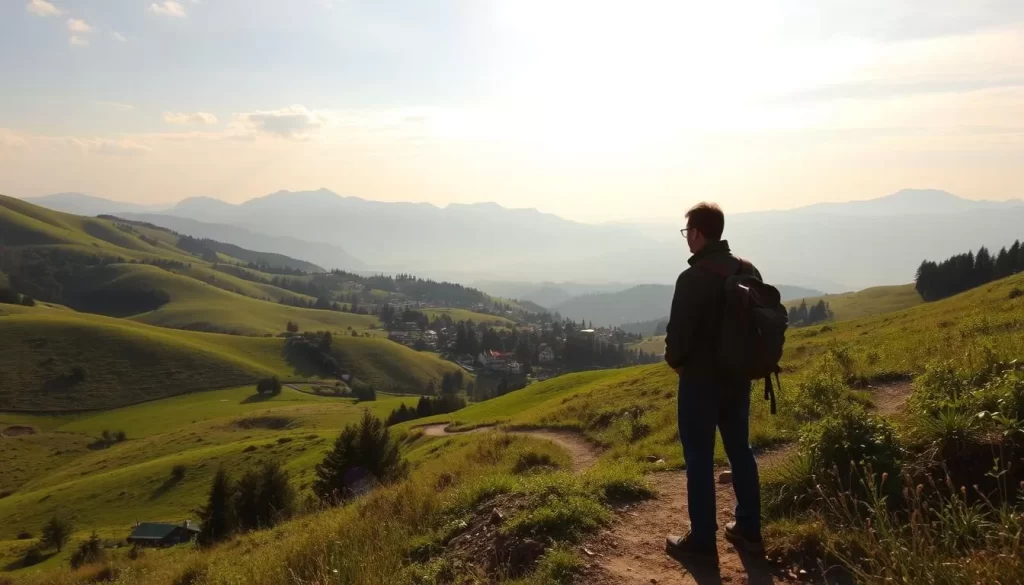
Navigating Transportation Options
Getting around is easier than you might think. Taxis are a convenient choice, but always negotiate fares beforehand to avoid surprises. Public buses and minibuses are budget-friendly, though they can be crowded and less flexible.
For more freedom, consider renting a car. This option allows you to explore at your own pace, but be prepared for navigation challenges. Guided tours are another excellent choice, offering local expertise and added security.
Local Safety Recommendations
Recent improvements in security have made travel safer than ever. Violence is at its lowest level since March 2004, thanks to increased efforts by local forces. However, it’s still wise to stay informed and cautious.
Always keep your belongings secure and avoid displaying valuables in public. Stick to well-lit areas at night and follow local guidelines for a worry-free experience. Apps like Google Maps or local travel guides can provide real-time updates and help you plan your route.
| Transportation | Pros | Tips |
|---|---|---|
| Taxis | Convenient, door-to-door service | Negotiate fares before starting your trip |
| Public Buses | Affordable, connects major areas | Check schedules in advance |
| Rental Cars | Flexibility, explore at your own pace | Familiarize yourself with local traffic rules |
| Guided Tours | Local expertise, added security | Choose reputable tour operators |
By following these tips, you can explore with confidence and focus on creating unforgettable memories. Whether you’re visiting a historic site or enjoying local culture, these practical insights will ensure a smooth and secure journey.
Photography Hotspots in Amarah
Capture the essence of a city where history and modernity blend seamlessly through your lens. Whether you’re a seasoned photographer or a casual visitor, Amarah offers countless opportunities to create stunning visual stories. From ancient landmarks to vibrant street scenes, every corner is a potential masterpiece waiting to be framed.
Golden Hour and Unique Angles
The golden hour—just after sunrise or before sunset—is the perfect time to capture Amarah’s beauty. The soft, warm light enhances textures and adds depth to your photos. This magical time transforms even the simplest scenes into breathtaking compositions.
For unique perspectives, experiment with angles. Try shooting from low to the ground to emphasize architectural grandeur or use reflections in water to add a creative twist. These techniques can turn ordinary shots into extraordinary ones.
- Al-Majar Al-Kabir Mosque: Capture its intricate details during the golden hour for a dramatic effect.
- Tigris River: Use reflections to create symmetrical compositions that highlight the river’s serenity.
- Old Market: Focus on candid moments and vibrant colors to tell the story of daily life.
For amateur photographers, here are some technical tips:
- Use a tripod for stability during low-light conditions.
- Set your camera to aperture priority mode to control depth of field.
- Experiment with ISO settings to balance light and noise.
Photography isn’t just about capturing images—it’s about telling stories. Each photo can convey the rich cultural and historical narratives of this city. Share your work on social media to inspire others to explore Amarah’s hidden gems.
Where to Stay: Hotels and Accommodations
Finding the perfect place to stay is key to a memorable trip. Whether you’re looking for luxury, mid-range, or budget-friendly options, this city has something to suit every traveler’s needs. From modern amenities to cozy settings, each hotel offers a unique experience that ensures comfort and safety.
Luxury Stays
For those seeking indulgence, luxury hotels provide top-notch service and premium amenities. Expect spacious rooms, fine dining, and stunning views of the city. These accommodations are often located near major attractions, making it easy to explore without hassle.
Mid-Range Comfort
Mid-range hotels strike a balance between comfort and price. They offer clean, well-equipped rooms and friendly service. Many are situated in convenient locations, giving you easy access to local sights and activities.
Budget-Friendly Options
Travelers on a budget will find plenty of affordable options. These hotels provide basic amenities and a comfortable stay without breaking the bank. Some even offer complimentary breakfast or free Wi-Fi, adding extra value to your trip.
When booking, consider checking for special deals available today. Early reservations often secure the best rates, especially during peak seasons. Reading reviews can also help you choose the perfect option for your needs.
- Luxury: Spacious rooms, fine dining, prime locations.
- Mid-Range: Comfortable stays, convenient locations, great value.
- Budget: Affordable, basic amenities, added perks.
No matter your preference, the right accommodation can enhance your journey. Take your time to explore the options and find the one that best suits your travel style.
Local Transportation and Getting Around
Navigating a new city is easier when you know your transportation options. Whether you’re planning a quick trip or an extended stay, understanding the available services can make your journey smoother and more enjoyable. From taxis to buses and private car hires, there’s a mode of transport to suit every traveler’s needs.
Taxis: Convenience at Your Fingertips
Taxis are a popular choice for getting around quickly. They offer door-to-door service, making them ideal for short distances or when you’re in a hurry. Always negotiate the fare before starting your trip to avoid surprises. Taxis are particularly useful for exploring areas not covered by public transport.
Buses: Budget-Friendly Travel
For those looking to save money, local buses are a great option. They connect major areas of the city and are an affordable way to get around. While they can be crowded, they provide a genuine local experience. Check schedules in advance to plan your trip efficiently.
Private Car Services: Comfort and Flexibility
If you prefer more comfort and flexibility, consider hiring a private car. This option allows you to explore at your own pace and visit off-the-beaten-path locations. Many services offer experienced drivers who can also act as guides, enhancing your travel experience.
| Transportation | Pros | Tips |
|---|---|---|
| Taxis | Convenient, door-to-door service | Negotiate fares before starting your trip |
| Buses | Affordable, connects major areas | Check schedules in advance |
| Private Car Services | Flexibility, comfort, guided tours | Choose reputable providers for safety |
When planning your trip, consider the pros and cons of each option. For more detailed insights into transportation and other travel tips, check out this . With the right choice, you can make the most of your time in the city and enjoy a hassle-free experience.
Discover Amara’s Bustling Markets
Step into the vibrant heart of local life where culture and commerce intertwine. The markets here are a treasure trove of beauty and tradition, offering everything from handcrafted souvenirs to delicious street food. Each stall tells a story, reflecting the rich heritage of this home to artisans and traders.
Shopping for Local Crafts and Souvenirs
Wander through the narrow alleys and discover unique items that capture the essence of the region. From intricately woven carpets to delicate pottery, the craftsmanship is unparalleled. These markets are not just places to shop—they’re cultural hubs where you can connect with the home of skilled artisans.
For the best experience, visit early in the morning or late afternoon to avoid the midday crowds. This is when the markets are at their most lively, yet manageable. Don’t forget to haggle politely; bargaining is part of the fun and often leads to hidden bargains.
After shopping, take a break at a nearby restaurant or street food stall. Savor local delicacies like grilled kebabs or sweet pastries, which add to the charm of your visit. These spots are perfect for soaking in the atmosphere and enjoying the beauty of the bustling scene.
Navigating the markets can be overwhelming, but with a little patience, you’ll find your way. Stick to the main paths and don’t hesitate to ask locals for directions. Their warmth and hospitality will make your experience even more memorable.
Celebrate the Natural Beauty of Amarah
Discover the serene landscapes that define this historic region. From the tranquil waters of the Tigris River to the lush marshlands, this area offers a lot of natural wonders to explore. These landscapes are not just beautiful—they’re also ecologically significant, supporting diverse plant and animal species.
Exploring the Tigris River and Marsh Regions
The Tigris River is a lifeline for the region, offering breathtaking views and a peaceful retreat from bustling city life. Its waters are home to a variety of wildlife, making it a perfect spot for nature lovers. The marshlands, recognized as a biodiversity hotspot, are equally captivating.
For a scenic drive, take the road along the riverbanks. This route offers stunning views and opportunities to stop and enjoy the surroundings. The best times to visit are during spring and fall, when the weather is mild and wildlife is most active.
These natural areas are not just for sightseeing—they’re also vital to the local ecosystem. Water buffalo, for example, play a key role in the marshlands, supporting both the environment and the traditional lifestyle of the Marsh Arabs.
“The beauty of the Tigris River and marshlands is unmatched. It’s a place where nature and tradition come together in perfect harmony.”
When exploring, remember to respect the environment. Stick to designated paths, avoid littering, and follow local guidelines to preserve these natural treasures. For more insights into the region’s history and culture, check out this on Amarah, located in southeastern Iraq by the Tigris River.
Take your time to relax and appreciate the vast beauty of your surroundings. Whether you’re strolling along the river or exploring the marshlands, these natural areas promise unforgettable experiences.
Cultural Do’s and Don’ts for Visitors
Understanding local customs is key to a respectful and enriching travel experience. When you visit a new place, showing respect for its traditions helps you connect more deeply with the community. Here’s a guide to help you navigate cultural nuances gracefully.

Dress Modestly and Respect Traditions
When exploring religious sites or public spaces, dressing modestly is essential. For both men and women, covering shoulders and knees is a sign of respect. This simple way of dressing shows that you value local customs and traditions.
In more conservative areas, women may consider wearing a scarf or shawl. This small gesture can make a big difference in how you’re perceived by locals. Always observe what others are wearing and follow their lead.
Local Etiquette and Greeting Tips
Greetings are an important part of local culture. A warm smile and a simple “Salam” (peace) can go a long way. Handshakes are common, but wait for the other person to initiate, especially when greeting someone of the opposite gender.
When invited into someone’s home, it’s polite to bring a small gift, like sweets or fruit. Removing your shoes before entering is also a common practice. These gestures show appreciation for the hospitality you’re receiving.
| Do’s | Don’ts |
|---|---|
| Dress modestly in public spaces | Wear revealing clothing in conservative areas |
| Greet locals with a smile and “Salam” | Initiate physical contact without permission |
| Bring a small gift when visiting a home | Enter a home without removing your shoes |
| Follow local customs and traditions | Disrespect religious or cultural practices |
By following these tips, you’ll show respect for the local way of life and create meaningful connections. For more insights into the region’s cultural resilience, check out this detailed report on how communities have preserved their traditions.
Conclusion
Exploring this vibrant destination offers a unique blend of history, culture, and natural beauty. From ancient landmarks to bustling markets, every corner tells a story. The Tigris River and marshlands provide serene escapes, while local crafts and cuisine showcase the region’s rich heritage.
Traveling here is made easier with practical tips on transportation and safety. Whether you’re navigating by taxi, bus, or private car, the journey is smooth and secure. Respecting local customs, like modest dress and polite greetings, ensures a meaningful connection with the community.
This guide highlights the diversity of experiences available, from historical sites to scenic landscapes. Each visit promises unforgettable memories and a deeper understanding of the area’s traditions. Start planning your trip today and immerse yourself in the charm of this remarkable destination.
For more insights into the region’s cultural resilience, check out this detailed report on fostering democracy in diverse communities. Your adventure awaits—explore, experience, and enjoy all that this place has to offer.
The above is subject to change.
Check back often to TRAVEL.COM for the latest travel tips and deals.
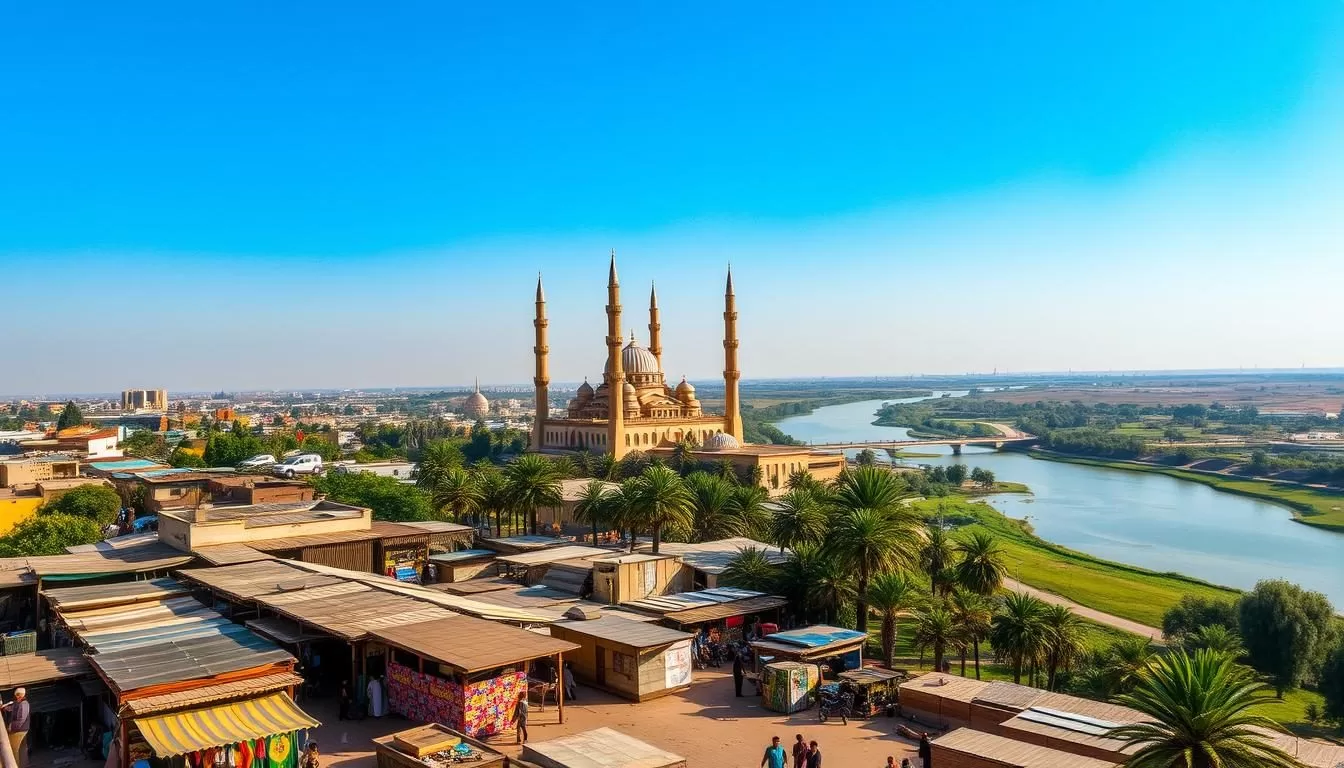

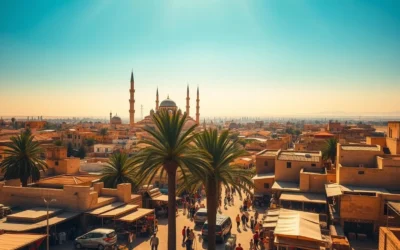
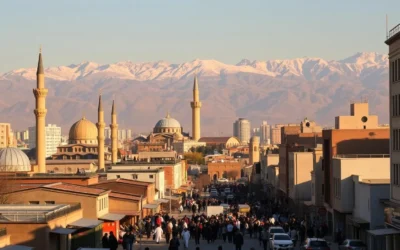
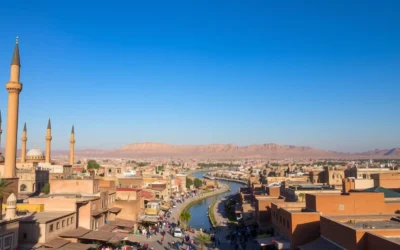
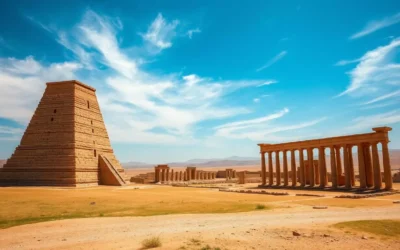
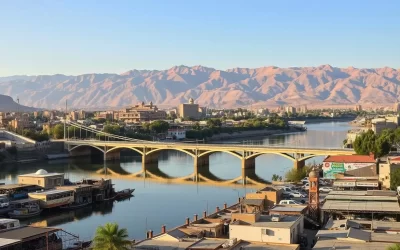
0 Comments